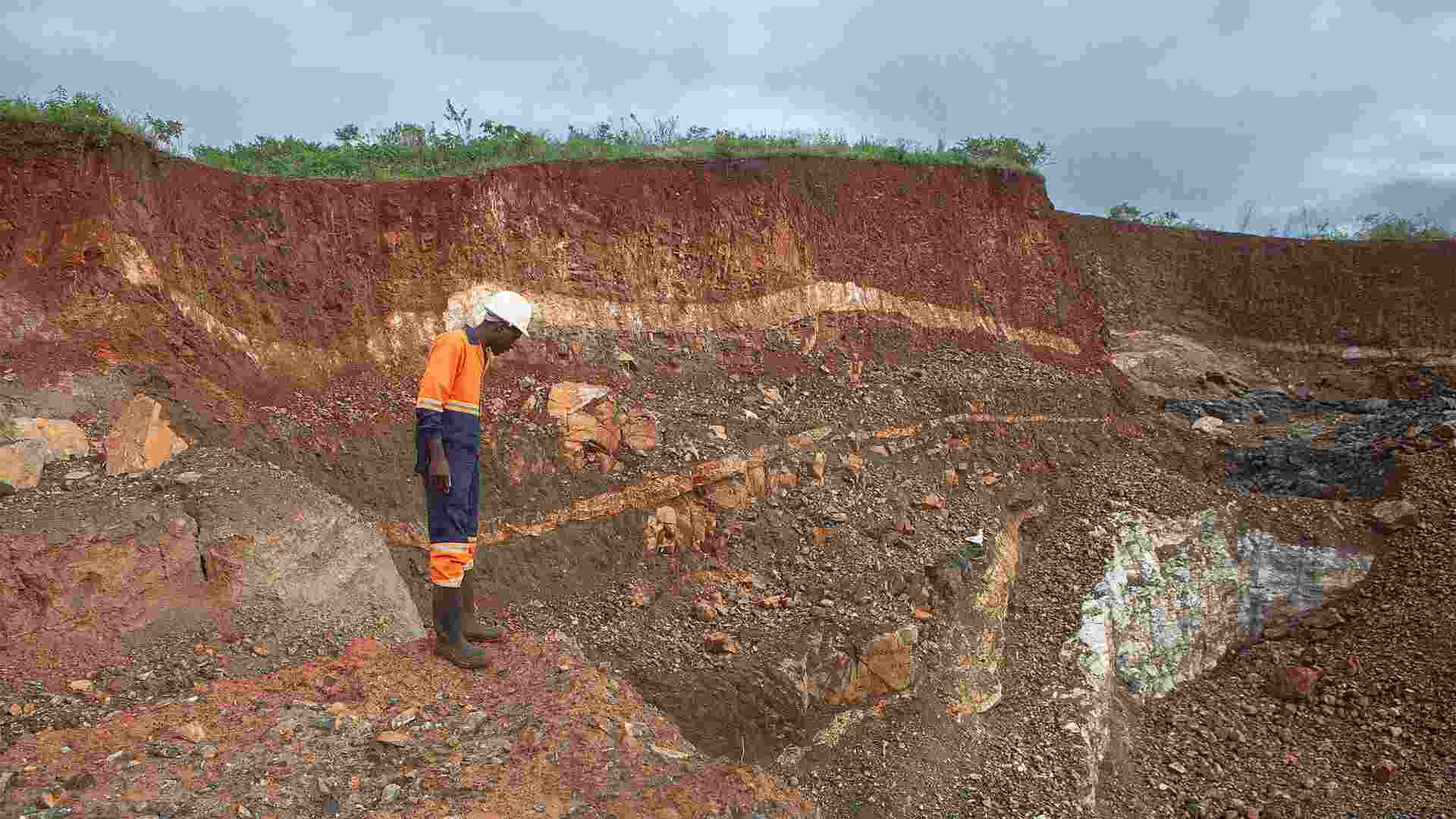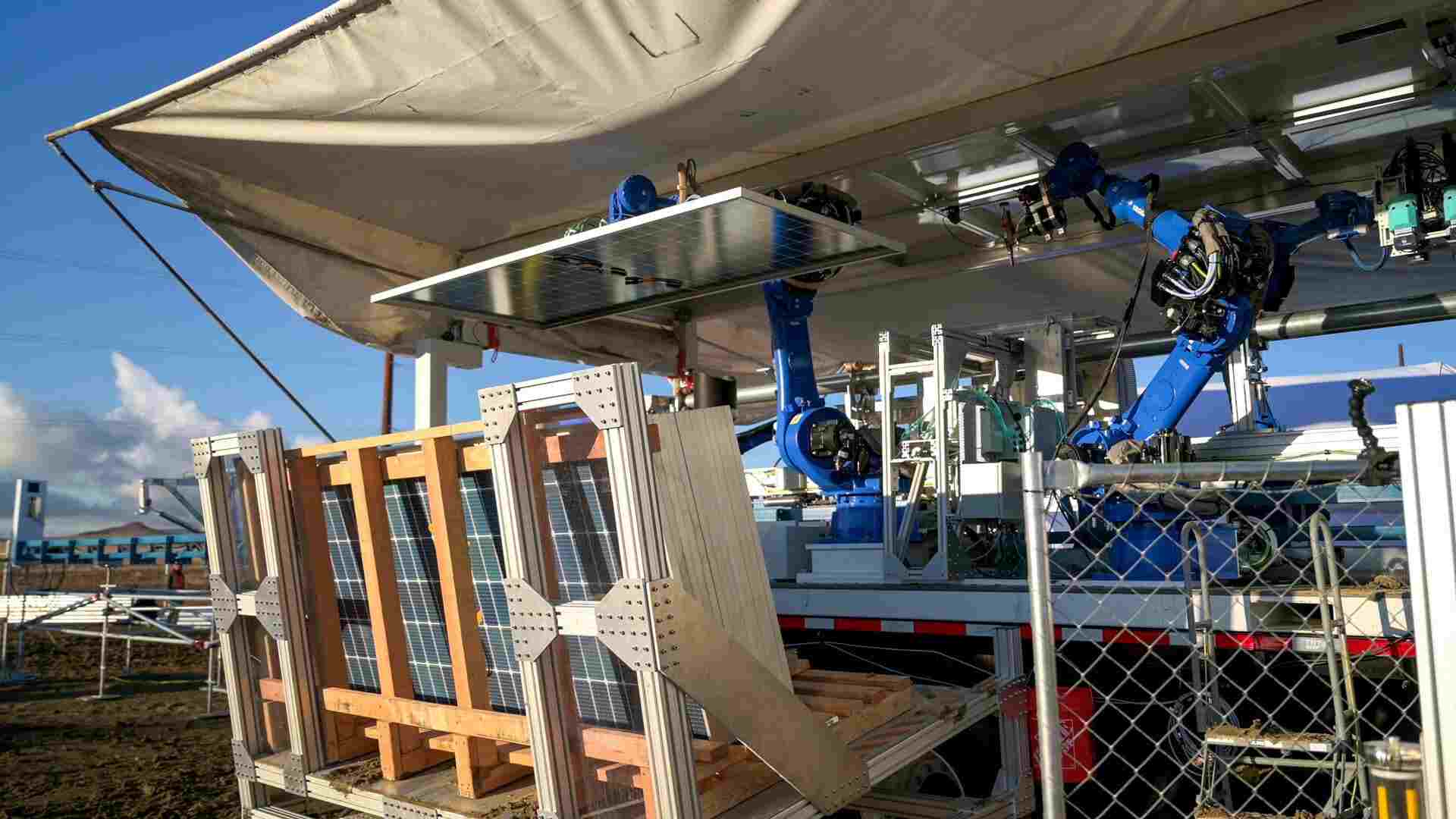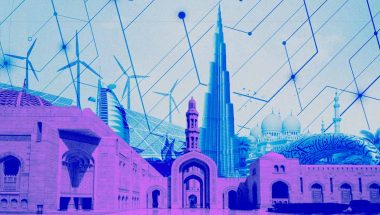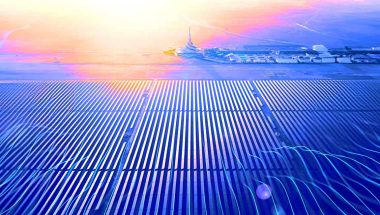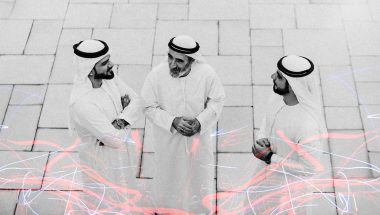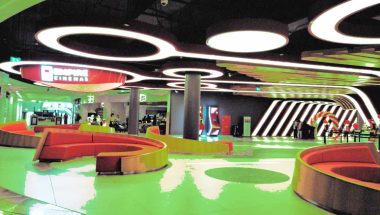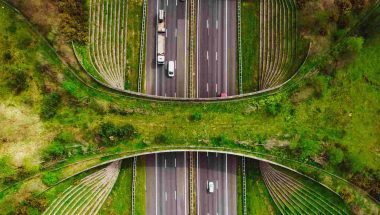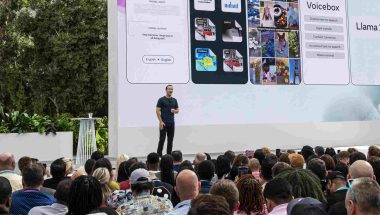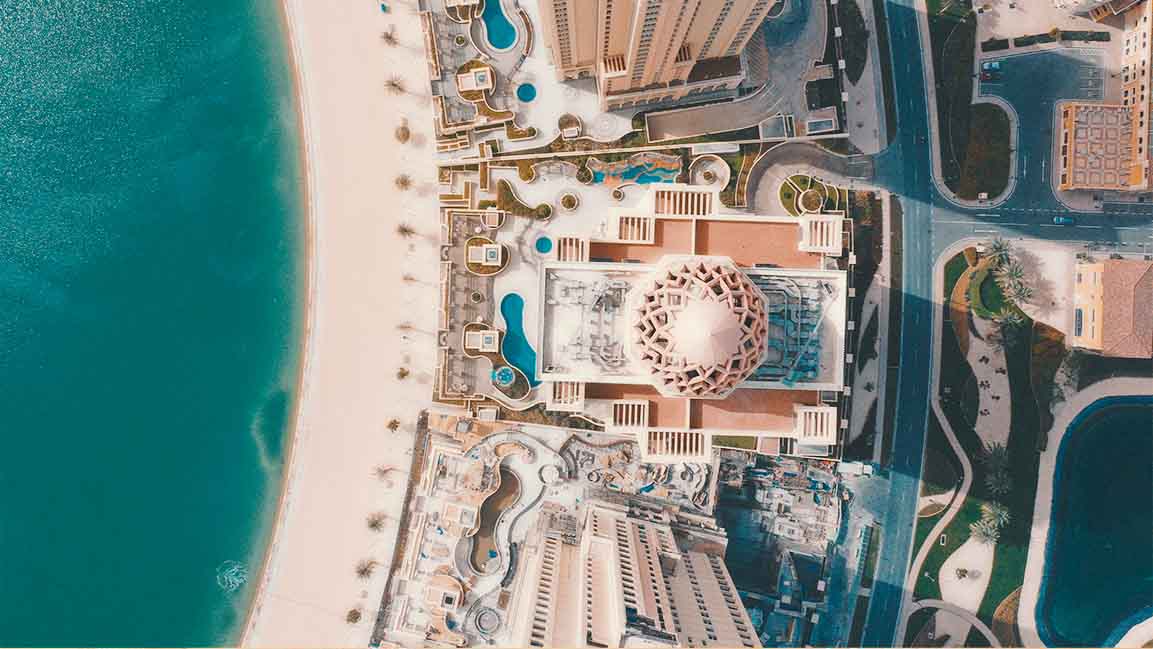- | 9:00 am
The Middle East has a food security problem. Can agritech solve it?
Meeting future demand for food through local production is why agritech is booming in the region
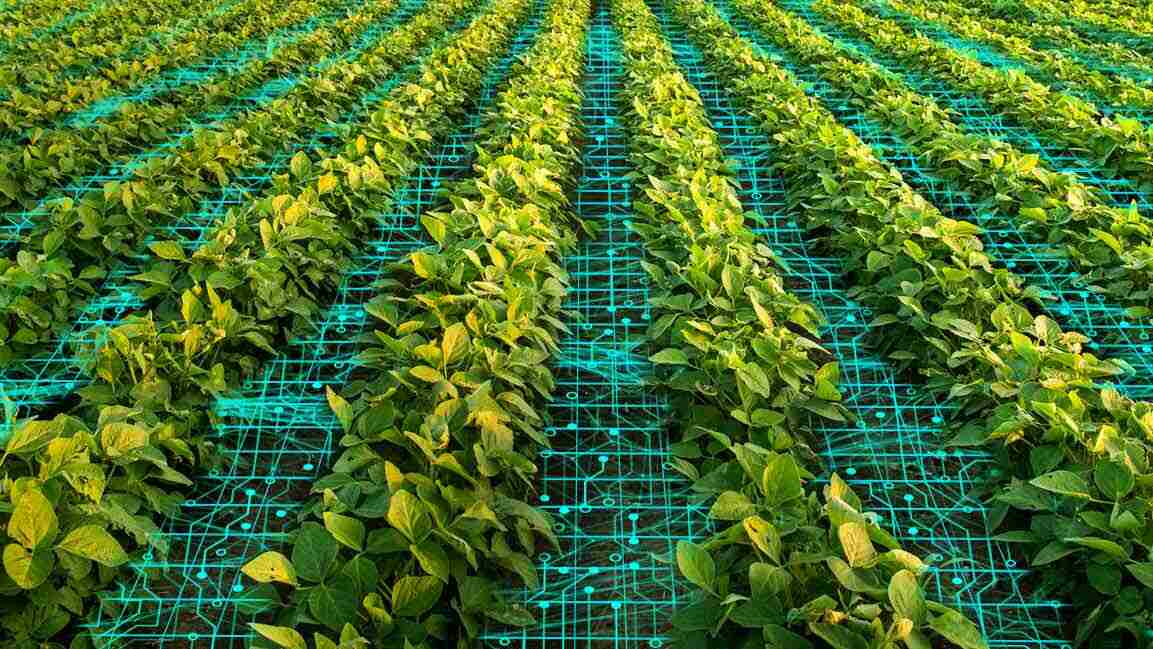
A bunch of coders are working in a glassy, open workspace, hunched over their laptops, intently looking at algorithms. No, this isn’t a startup developing the next big app, but a farm spread across hundreds of acres. And the young farmers are looking at big data to track plant health, crop and weather patterns.
We live in the brave new world of satellite-driven tractors and robots harvesting lettuce and tomatoes in greenhouses. Sensors detect nutrients and water in the soil, enabling farmers to decide what to plant, when to fertilize, and how much to irrigate. Artificial intelligence and data dashboards have given rise to a generation of smart farming technologies that can sense and respond to its environment to maximize production while minimizing negative impact.
This is a scenario that’s slowly beginning to be realized in the Middle East when a crisis is bearing down at the same time. Drought is ravaging Jordan’s economy. Yemen, where a dire hunger crisis is teetering on the edge of outright catastrophe, is struggling to pay for wheat imports even before the Russia-Ukraine war broke out. In Syria, the price of tea has almost tripled in the last year. And in Egypt, people venting about food prices have recently gone viral on social media under the hashtag “revolution of the hungry.”
Food shortages have placed the region in a quandary. Since 1950, the population has almost quadrupled from around 100 million to 380 million in 2000 and is expected to reach nearly 600 million by 2050. On average, the GCC countries import 90% of food products. Qatar topped the GCC in terms of its dependence on imports at 97%, followed by Bahrain at 92%, Kuwait (91%), and the UAE and Oman at 89% each.
The challenge of food security is critical, making countries in this region rethink that maths, as a generation of entrepreneurs is changing farming to produce better, less expensively, and more intelligently. It’s an expanding movement that aims to transform the region’s agriculture.
At Red Sea Farms, a Saudi agritech start-up, innovative experts are eager to change the industry that desperately needs them to thrive. “Around 70% to 80% of the world’s freshwater is used for agriculture, and every aquifer we use for this purpose is being depleted,” says Mark Tester, who co-founded Red Sea Farms with Ryan Lefers. “The situation is unsustainable. We use saltwater and sunlight as base resources leading to power savings of 300 liters of freshwater per kg of produce.”
AN APPETITE FOR INNOVATION
The start-up developed solar, cooling, and AI-led monitoring technologies enabling them to grow food using saltwater, rather than freshwater, as the primary input. “AI is used to help interpret large data on environmental parameters in greenhouses and advise on what needs changing. We are also developing systems for recognizing pests and diseases, AI can make valuable contributions in this area,” adds Tester. “The impact of our tech increases every week. As the algorithms build on each other, everything gets increasingly powerful.” Established in 2018, Red Sea Farms grows fresh produce such as cucumbers, snack tomatoes, and peppers.
The biggest advantage of tech is that, with pressure on food supplies likely to mount in coming decades and the full force of climate change beating down, farmers can produce more food in a more environmentally friendly way. The digital evolution of agriculture in the region is well underway, and huge high-tech hydroponic farms are multiplying. Companies such as Pure Harvest that use next-gen greenhouse technology are accelerating the maturity of the agritech.
“We have developed technologies that enable us to farm high-quality fresh produce year-round, using limited natural resources and, where possible, integrating our solutions with renewable energy sources to power our proprietary climate management systems,” says Sky Kurtz, co-founder and CEO of Pure Harvest.
Its smart tech removes heat and humidity from the hot air; humidity is converted to water to grow fresh fruits and vegetables – from strawberries to tomatoes — hydroponically, without soil, while sensors measure nutrients, temperature, and other related factors to plant health. It is more water-efficient than traditional field farming while producing more food per area.
Innovation in agritech is critical to reducing import dependency. According to reports, total productivity needs to increase 1.73% annually to sustainably double agricultural output by 2050. If not, the productivity gap will grow, and food prices will rise, increasing food insecurity in the region.
With climate change having myriad impacts, the Middle East, already one of the world’s most water-deficient regions, is hitting hard. The amount of freshwater available for each person, already scarce, will be cut in half in a decade. To tackle this, Israel has become the world’s leader in maximizing agricultural output per drop of water. It serves as a viable model for other countries in the region.
Tunisia, home to several smart farming innovators, including Ezzarya that install sensors in irrigation pipes and in the soil to help farmers regulate soil salinity and inject mineral salts to improve crop yields, has reinvigorated its agriculture sector by adopting some of the desert farming advances pioneered in Israel, and Egypt’s desert farms now mostly use drip irrigation.
DIGITAL COMMUNITY FOR FARMERS
“Agriculture contributes 11.3% of the Egyptian GDP, directly helping the employment of 30% of the labor force. Despite that, it has a weak economic return for farmers,” says Hussein Abou Bakr, founder and CEO of Mozare3, an agri-fintech start-up that has built a super app enabling farmers to sell their produce through digital offtake agreements, access credit, receive agronomy support and buy fertilizers and other products to grow crops.
“We help farmers be digital-ready, enable them to access finance and market information by linking them to local and regional markets through our app where they get updates on their contracts, receive delivery notifications, and find new opportunities,” adds Abou Bakr. “Tackling food security must be seen in a much wider context and be treated concertedly.” The start-up aims to serve over 20 million small farmers in Egypt.
Innovative initiatives are bringing to reality a new breed of farming in the UAE that seeks to produce more crops in less space and water. While the world’s largest vertical farm is being built in Dubai by US firm Crop One and Emirates Flight Catering to produce 2,700 kilos of high-quality leafy greens daily, American company Nanoracks is opening StarLab Oasis in Abu Dhabi, where an international team of scientists and engineers will find ways to help food production thrive in challenging climates.
So how close are we to fully automated farms?
“We will always need humans, but hopefully, technologies can help us reduce unpleasant jobs, help us make better decisions, be more productive and less polluting,” says Tester. “Our primary focus is to develop our technologies and, in parallel with that, demonstrate our technologies to farmers and build a substantial dataset to enable good quality business cases for farmers.”
And investors are taking note, as the space has attracted more investments over the past few years. Pure Harvest secured $250 million in investment, and Red Sea Farms raised $16 million of funding in 2021 from Future Investment Initiative Institute; King Abdullah University of Science & Technology, Saudi Aramco’s entrepreneurship arm Wa’ed, and UAE-based venture capital group Global Ventures. Mozare3 raised over $1 million in a pre-seed round led by Algebra Ventures and Disruptech last year. According to Wamda, from 2014 until 2020, there have been 33 investment deals in agritech start-ups amounting to $250 million in disclosed investments. In the UAE, the government invests in agritech. Abu Dhabi announced a $100 million investment in four agritech companies, including Madar Farms and RDI (Responsive Drip Irrigation) which developed an irrigation system to grow plants in sandy soil.
In a region where it’s common to find lemons from South Africa, potatoes from India, and tomatoes from Australia, new-age farming has a huge potential to address the region’s reliance on the global food trade and food shortages as the population continues to grow.
“At our core, we are farmers – not a technology company. We sell strawberries, not semiconductors. We are harnessing the wonders of science and the power of nature to provide affordable and sustainable fresh produce,” says Kurtz.














